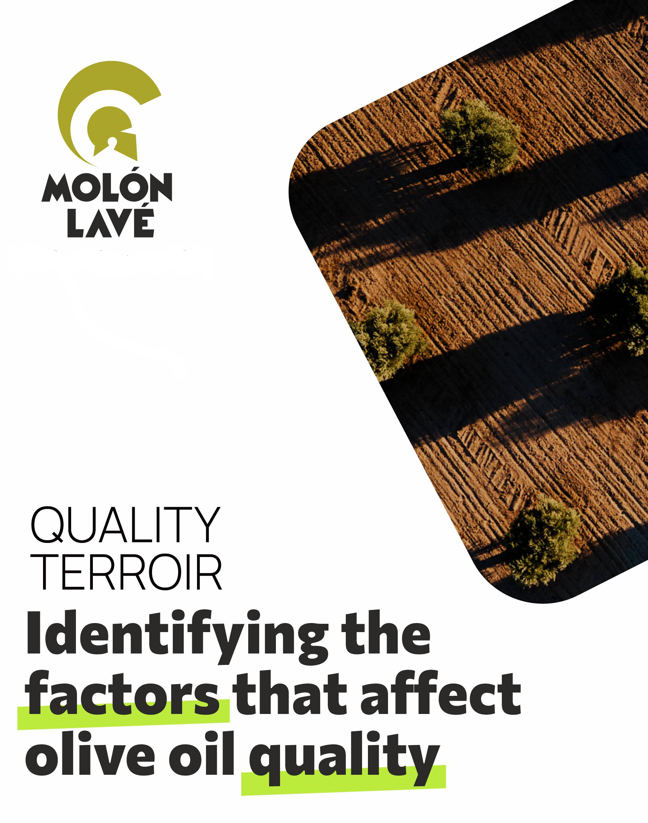
The quality of olive oil depends on several factors, such as the olive variety, the cultivation practices, the climatic and soil conditions, the practices of pressing the olive fruit, and the procedures until its bottling.
The French term 'terroir' refers to the intricate interplay of all factors influencing olive oil quality. Gaining insight into the specific impact of each factor contributes to the production of extra virgin olive oil from raw materials with high nutritional value and scientifically documented bioactivity.

MOLON LAVE, innovating in the field of olive oil, implemented quality terroir in its olive groves, an experimental process of evaluating multiple samples from different olive varieties in collaboration with FoodOxys PC spin-off.
 | DURATION 1 year |
 | OLIVE VARIETIES Koroneiki / Athinolia |
 | IRRIGATION CONDITIONS Irrigated / Dry |
 | ALTITUDINAL CONDITIONS Low / High altitude |
THE PROCESS
FoodOxys applied a holistic approach, scientifically proven, to assess the capacity of the samples:
to scavenge free radicals | |
to protect DNA from severe oxidative damage | |
to exert effects on the antioxidant system of human cells (endothelial, hepatic, gastric), cultured under controlled laboratory conditions |
THE RESULTS
The samples from MOLON LAVE olive
groves with the Koroneiki and
Athinolia olive varieties
show high antioxidant
activity
The samples from MOLON LAVE olive
groves with the Koroneiki and
Athinolia olive varieties
show high bioactivity
in human cells.
